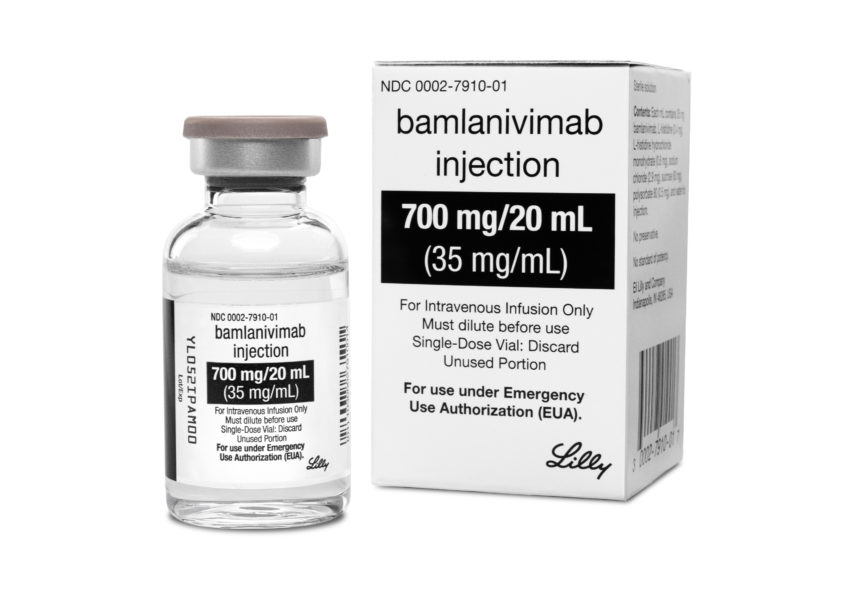
Some clinicians are reporting uncertainty about what constitutes the most effective dose of Eli Lilly’s new intravenous COVID-19 therapy, according to a new report.
The drug bamlanivimab, a monoclonal antibody, was approved for emergency use Monday by the Food and Drug Administration. Trials have shown that it may prevent severe outcomes in patients with mild symptoms who are not hospitalized.
But some clinicians have asked whether the decision to authorize doses of 700 mg versus a greater dose found effective in clinical trials is based on a supply problem, reported medical news outlet STAT.
Trial participants received one of three doses, 700 mg, 2,800 mg or 7,000 mg. Only the 2,800 mg dose was linked to a reduction of detectable virus.
“This is not an ideal situation, because the dose discrepancies have confused people,” Walid Gellad, M.D., MPH, director of the University of Pittsburgh’s Center for Pharmaceutical Policy and Prescribing, told STAT. “Also the government already purchased 700 mg vials, which may be relevant here, and a 2,800 mg dose would mean many fewer doses.”
Eli Lilly said that it was confident in the evidence supporting a 700 mg dose, and that the key result of its study is that 10% of the placebo group were hospitalized compared with 3% of those who received bamlanivimab, STAT wrote.
U.S. health officials also stand behind the recommended dosage. “If you look at the hospitalizations … there was a decrease in each of the subgroups,” said Janet Woodcock, M.D., a member of the federal Operation Warp Speed vaccine delivery team, at a Tuesday press briefing. “[T]he lower dose is a rational choice in this situation. You don’t want to give more of a drug than you need. … I think you could probably go lower, frankly,” STAT reported.




